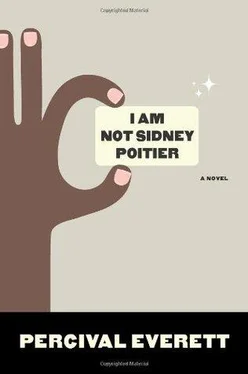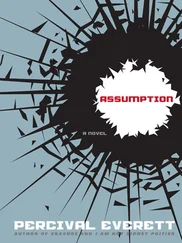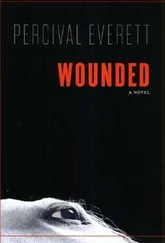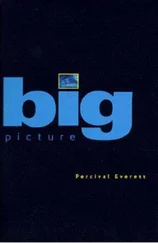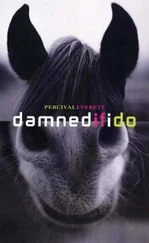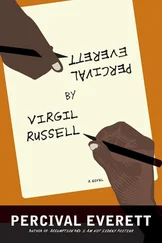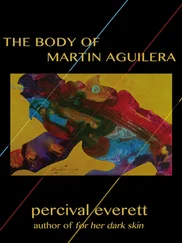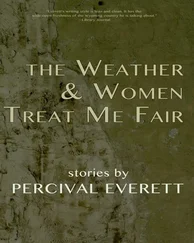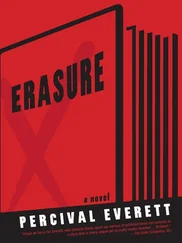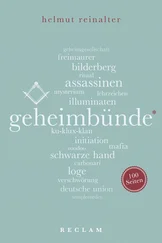“What do they grow here?” I asked no one in particular, but for some stupid reason said it out loud.
“This here is a dirt farm, boy,” a mirrored-lens-covered set of eyes shouted at me. “Our dirt crop ain’t what it used to be and it never was!” That’s what I finally figured out he said. It sounded like, “Dis chere a dir farm, boi. Aw dir crop ain’t wha eah yoost to be, but den tit neber wa.” This would be how all the guards sounded all the time, and so I had no idea what they were telling me to do or not do.
They gave me a moth-eaten army-surplus blanket and a bar of soap and a tin cup and a quilt-thin mattress to put on the metal slab that was my bunk. The toilet was a hole in the middle of the aisle in the center of the shack. In other words, we were sleeping in a big outhouse. All of the men in my shack were black, as lost looking as I was, but finally not so much different from the rest of the inhabitants of Peckerwood County. The older men pushed me and insulted me, called me nigger, and forced me to the bunk nearest the toilet hole.
That first night I was awakened by a big white potato face looming over me. I of course had no idea what he was saying, at the top of his lungs, but it was clear that he wanted me to come with him. He took me out into the yard and handed me a shovel, opened his mouth, and let out, “Way dunt ye digs me a hole ri chere, boi?” But it wasn’t a question.
Since there was a shovel in my hands and ground beneath my feet, I assumed he wanted me to dig my own grave, so I started. The ground was rock hard, and the shovel didn’t make a dent.
“Put yer bac inter it!” he said.
I did, leaning onto the implement and scratching out a little stubborn earth at a time. I worked away; the tobacco-chewing Nazi stood over me while I became soaked with sweat and grief.
“Keep awn deegin’.”
It was so dark and still so hot. I was about two feet down into a sizeable ditch when another peckerwood joined us. He looked at me and said, “Why’n ye takin tha dir outta my hole, boi?”
“Because I was told to,” I said.
“Ja hear tha?” the second said to the first.
“Sho nuff.”
“You’n a uppty nig, aintcha?” the first said. “We’s awl gyine put y’all in da cain.”
“Ya, in da cain,” the second said, laughing a kind of panting-dog laugh. “We see haw he see thangs in the mornin’.”
I had no idea what they said, but I knew it couldn’t be good. They dragged me some yards away and stuck me all folded up into a four-by-four-foot corrugated-tin cube in the middle of the camp. I felt hot and sick in the dark and thought that I was about ready to die. I recalled all the prison movies I had seen, not many, and wondered if some good-hearted trustee or brave fellow prisoner would appear with a much-needed drink of water or a biscuit or a leathery scrap of dried meat. None did. However I was sure that the cliché shower scene was certainly on the program. I had the thought that things could not get any worse, and then I heard the thunder. It rained much of the night. With the heat and the humidity, the rain and the confinement, I felt hot and cold and parched and soaked.
The next morning I was dragged out of the can, not the box as I might have called it (it being a box), and was nearly blinded by the intense sun. I was distracted from the stinging light by the stinging blows to my midsection and the side of my head. I stumbled into the mess line and received a platter of gruel and a tin cup of warm pond water. We were then lined up chained to a partner, in my case the same fellow as the day before, and marched toward a bus, the top of which was laden with shovels and hoes and slings.

The bus was an oven. I felt my stomach turn as soon as I boarded. It stank of the sweat of men, the piss of men, and the shit of men. And though we prisoners were soaked and sickened, somehow neither the smell nor the heat seemed to affect the guards whose jackets remained on and buttoned, the brims of their Stetsons remained pulled low, and the ammo belts were worn snuggly around their corpulent middles. I sat near the back of the bus, my face pressed against the diamond-patterned cage, my right wrist shackled to the white man’s left. The foul-smelling behemoth belched and roared to life, and we bounced out to the highway. The sad guts of Peckerwood County rolled by in a blur, and the sight of it did not lift my spirits. A red pickup with a couple of teenagers riding in the bed pulled even with the bus and then started horn blowing and shouting. I could not make out what they were saying, their being from Peckerwood County, but the quality and substance of their noise were clear. I heard “nigga” a lot and “darkie” and “slave.” Then, as the pickup sped up to avoid oncoming traffic, it began to fishtail. Then the bus began to fishtail, and I could see that this was not a good thing. I gripped my fingers tight around the plastic molded seat, pulling against my shackle mate’s attempt to pull his hands to his face, which by the time I looked was wide open in a Munchian scream. My grip failed as the bus began to capsize. We tumbled across to the far side, then across the ceiling as the bus somersaulted down the embankment. The air was filled with screams and choking sounds and dust and crying and dust and swearing and dust. It came to rest upside down.
I don’t believe I was knocked completely unconscious, but it did take me some time to gather myself and evaluate my predicament. My first assessment led me to the ridiculously obvious conclusion that I was deep in what my mother would have called dung pudding. I was lying facedown on my faceup shackle partner. He was out cold, an immediate plus that soon became a minus as I detected the odor of gasoline. Fearing the bus would explode into flames at any second, I yelled at his dead face.
“Hey!” I looked around. Then, “Peckerwood!” I closed my eyes and listened to the moaning and weeping all around me. I did not believe myself to be injured, though I considered the possibility that shock and adrenaline might be covering any pain. The gas fumes found my nostrils again. “Peckerwood!” I shouted. I crawled over his body and dragged him across the ceiling to the emergency door at the rear of the bus. At some point it had been welded shut, but the accident had torn the doors off. My shackle mate began to come around as I pulled both of us through mud and away from the wreckage. I sat up and leaned against a thin tree and watched. The guards were dead or unconscious. Many of the prisoners were not moving either. Others were locked into place by their incapacitated cuff buddies. My partner sat up and looked at the mess with me. He looked at me.
“I thought the bus was going to blow up, so I dragged you over here,” I said. “I was wrong.”
“Let’s go,” he said.
“What?”
“Let’s get outta here. You stupid or somethin’? We gotta run.”
Of course he was right. The Peckerwood justice system had proven to be anything but, and if I remained I faced perhaps another year tacked onto my sentence for surviving the crash.
“Come on, boy!” the cracker shouted, getting up to pull me into moving with him. “Run!”
And so we ran. Without looking back. Without looking at each other. We roughly yanked each other this way and that, not thinking about destination or even direction, moving only to put distance between the wreckage, the guards, the cops, and ourselves.
We ran through a hollow and got scratched thoroughly by a stand of some kind of thorny bush. Finally we stopped running, panting like dogs. Peckerwood tugged the chain and I pulled back and suddenly we were wrestling with it. He tried to yank me past him, but he lost his balance and I fell on top of him. He must have injured his back in the bus crash because he screamed out in pain that I had not inflicted. I stood up and over him, my hands on my knees, trying to catch my breath.
Читать дальше
